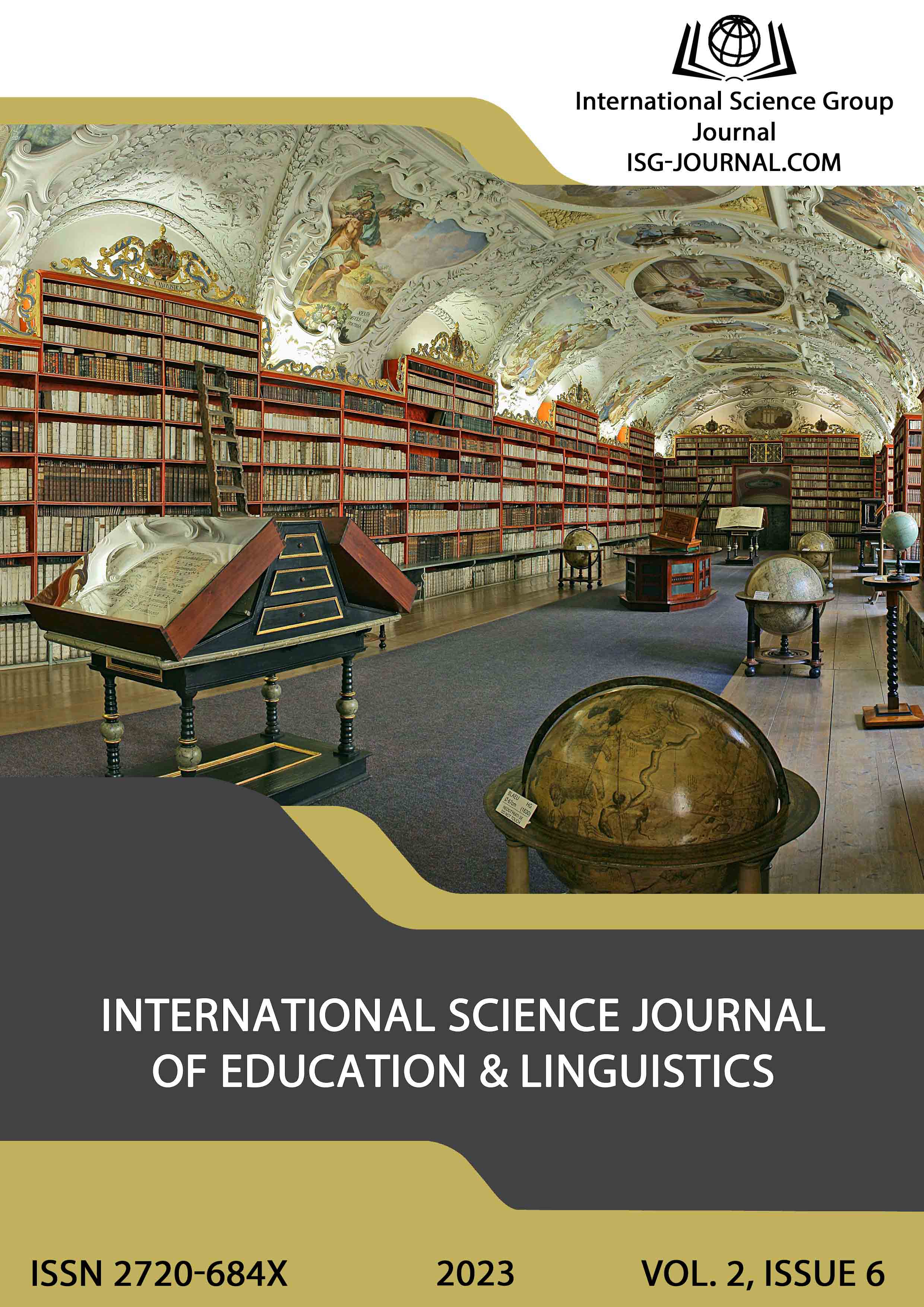Neurolinguistic programming in the context of foreign language learning
DOI:
https://doi.org/10.46299/j.isjel.20230206.02Keywords:
foreign language learning, linguistics, neurolinguistics, neurolinguistic programming, submodalitiesAbstract
The article deals with theoretical analysis of the concept of neuro-linguistic programming as a branch of neurolinguistics that uses elements of reading verbal and non-verbal human behaviour in order to influence and obtain the desired result from it. The use of neuro-linguistic programming methods is extremely important, as each person perceives the world subjectively, passing certain information through their own feelings and the prism of their experience, personal beliefs and principles, etc. In our deep conviction, it is the analysis of such moments that will allow us to individualise the process of learning foreign languages by creating certain individualised tasks of various types in the context of educational process. The article also considers the possibilities of neurolinguistic programming, which includes a better understanding of oneself, one's abilities and capabilities, which makes it possible and promotes the correction of certain actions and behaviour in general, self-motivation, effective goal setting, and the development of assertiveness. The article describes the basic principles of neuro-linguistic programming: positive attitudes, creation of a favourable learning environment and entering a "resource state", as well as the practical use of this method as a useful tool for effective learning of foreign languages, which is extremely relevant today, as it helps to improve communication skills and expand intercultural understanding.References
Белявська, О. О. (2010). Використання нейролінгвістичного програмування в навчанні. Ефективна комунікація між викладачем та студентом. Наукові записки Національного університету "Острозька академія", 15, 7–13.
Бреславець, Н. О. (2017). Нейролінгвістичне програмування в контексті інтерактивного навчання. Науковий часопис Національного педагогічного університету імені М. П. Драгоманова, 58 (5), 34–40.
Жигжитова, Л. М. (2018). Застосування принципів нейролінгвістичного програмування під час навчання іноземним мовам. Науковий часопис НПУ імені М. П. Драгоманова, 61 (5), 84–87.
Засєкін, С. В. (2009). Нейролінгвістичні закономірності мовленнєво-мисленнєвої діяльності перекладача. Науковий вісник Волинського національного університету ім. Лесі Українки, 6, 390–394.
Іщук, Т. (2014). Нейролінгвістичне програмування як ефективний метод навчання перекладу: аспект пізнавальної функції мови. Актуальні питання гуманітарних наук, 8, 242 – 248.
Ковалевська, Т. (2009). Лінгвістичні основи нейролінгвістичного програмування. Науковий вісник Чернівецького національного університету, 475/477, 270–277.
Лялька, О. М. (2011). Передумови становлення сучасної нейролінгвістики. Мова і культура: наук. журн. Київ. нац. ун-т ім. Тараса Шевченка, 14 (4), 18–23.
Тригуб, Г. В. (2015). Нейролінгвістичні особливості мовленнєвих афазій. Вісник Одеського національного університету, 20 (1), 81–88.
Шнуровська, Л. В. (2013). Нейрологія білінгвізму: фактори та ознаки. Вісник Київського національного лінгвістичного університету, 16 (2), 150–157.
Bambini, V. (2010). Neuropragmatics: a foreword. Italian Journal of Linguistics/Rivista di Linguistica, 22, 1–20.
Van Lancker Sidtis, D. (2006). Does functional neuroimaging solve the questions of neurolinguistics? Brain and Language, 98, 276–290.
Sheils, J. (1993). Communication in the modern language classroom: Strasbourg, 250.
Mao, L., and Zhang, Y. (2018). English teaching innovation classroom based on whole brain theory. Neuroquantology, 16, 437–445.
Sun, X. (2017). Innovation management of English teaching in higher vocational colleges in China. Agro Food Indus. Hi-Tech 28, 628–631.
Tarpey, P. (2009). Professional Memory and English teaching. Eng. Teach. Prac. Crit. 8, 52–63.
Downloads
Published
How to Cite
Issue
Section
License
Copyright (c) 2023 Svitlana Guzhva

This work is licensed under a Creative Commons Attribution 4.0 International License.





